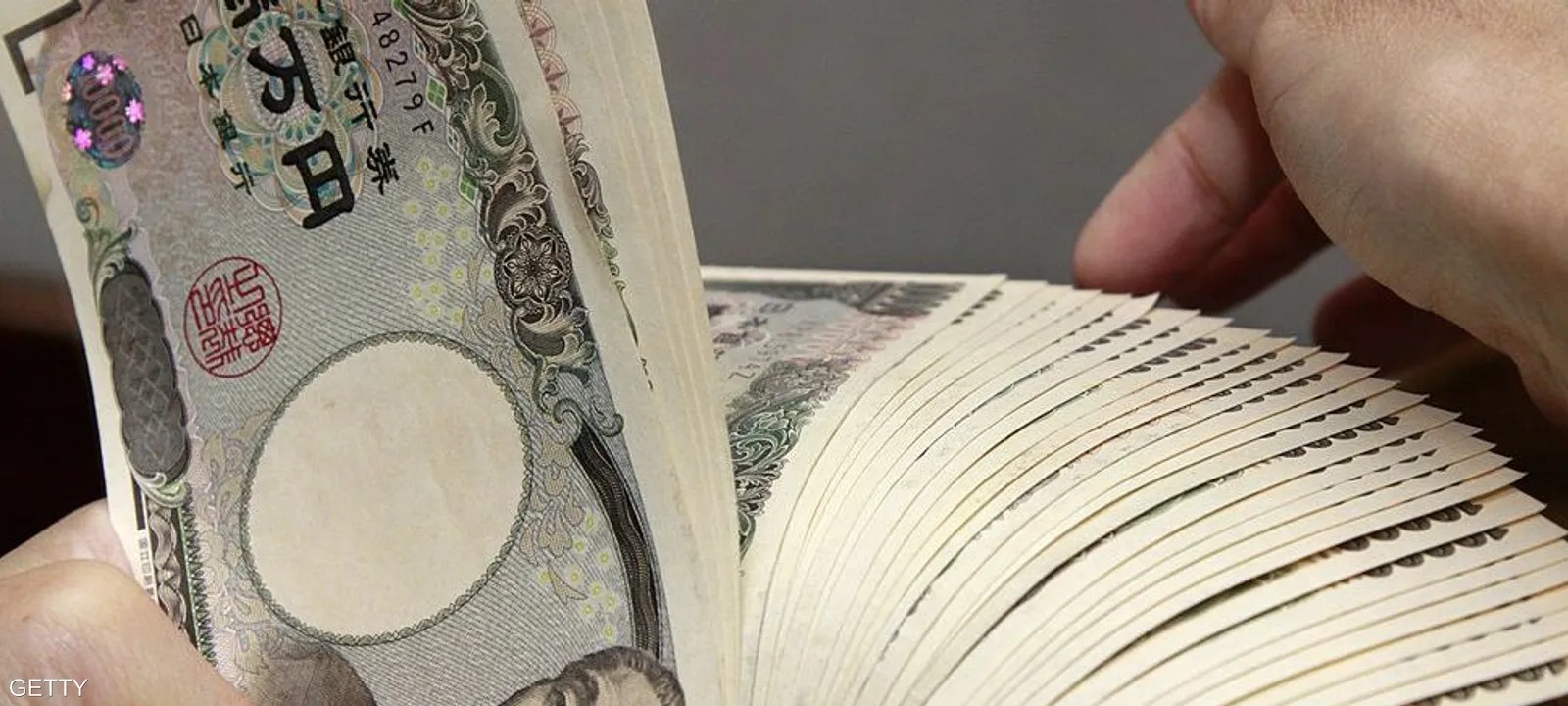The Japanese yen surged to a one-week high against the US dollar in Asia on Monday, as the chances of a Japanese interest rate hike in December increased, while markets welcomed US President-elect Donald Trump's nomination of Scott Bessent to oversee the US Treasury Department.
The selection of Bessent, a veteran Wall Street expert, has led to a decline in the yield on the US 10-year Treasury note, narrowing the yield gap between Japan and the US, which supports the rise in the Japanese yen exchange rate.
The dollar fell against the yen by about 0.8% to reach 153.54 yen as the lowest level in a week, compared to the closing price of Friday's trading at 154.71 yen, and recorded the highest level during trading today at 154.39 yen.
The Japanese yen lost more than 0.1% against the US dollar at settlement on Friday, its fourth loss in five days, after the release of strong data from the US services sector.
The yen lost 0.3% against the dollar last week, its second straight weekly loss, on concerns about a widening gap in bond yields between Japan and the United States.
Bank of Japan Governor Kazuo Ueda said last week that the central bank would assess data before reviewing interest rates next month and would take seriously the impact of the yen’s moves on the economic outlook and prices. Ueda said the economy was moving toward sustainable inflation driven by wage growth, and cautioned against keeping borrowing costs too low.
Following these comments, the probability of the Bank of Japan raising interest rates by a quarter percentage point at its December 19 meeting rose from 54% to 60%.
In a Reuters poll conducted Nov. 13-21 and published last Friday, 56% of economists (29 out of 52) said the Bank of Japan would raise borrowing costs again by the end of the year, compared with 49% in the previous month’s poll. Nearly 90% of economists (44 out of 49) expected the BOJ to raise rates to 0.50% by the end of March 2025.
According to US media, US President-elect Donald Trump nominated Scott Bessent, founder of investment firm Key Square Group and one of the most prominent supporters of the idea of imposing political oversight on the Federal Reserve, to take over the position of US Treasury Secretary on Friday.
“Bissent will help me usher in a new golden age for the United States, cementing our position as the world’s largest economy, a hub for innovation and entrepreneurship, and an attractive destination for global capital,” Trump said in a statement. “He will also ensure that the dollar remains the world’s number one reserve currency, without a shadow of a doubt.”
Market participants surveyed by Bloomberg following Bessent’s nomination noted that the hedge fund manager is taking a more gradual approach to tariffs while seeking to rein in the budget deficit, which are positive signs for the U.S. economy and markets.
“After another string of Trump nominations and a long-running battle between Treasury Secretary candidates, there is a sense of relief among U.S. financial market participants following the announcement of Bessent’s nomination,” said Erik Nielsen, economist at UniCredit Bank (NYSE:NLSN).
The yield on the 10-year US Treasury note jumped more than 1.4% on Monday, hitting a one-week high of 4.341%, weighing on the US dollar.
The US bond market welcomed President-elect Donald Trump's choice of a prominent hedge fund manager, Scott Bessent, as a veteran Wall Street expert.
Following this choice, according to the CME Group's FedWatch tool, the probability of a 25 basis point cut in US interest rates at the December meeting rose from 52% to 56%, and the probability of keeping rates unchanged fell from 48% to 44%.
The current narrowing gap in long-term bond yields between Japan and the US is enhancing the attractiveness of Japanese yields as an investment target for short sellers and deal financing, supporting the appreciation of the Japanese yen.






































